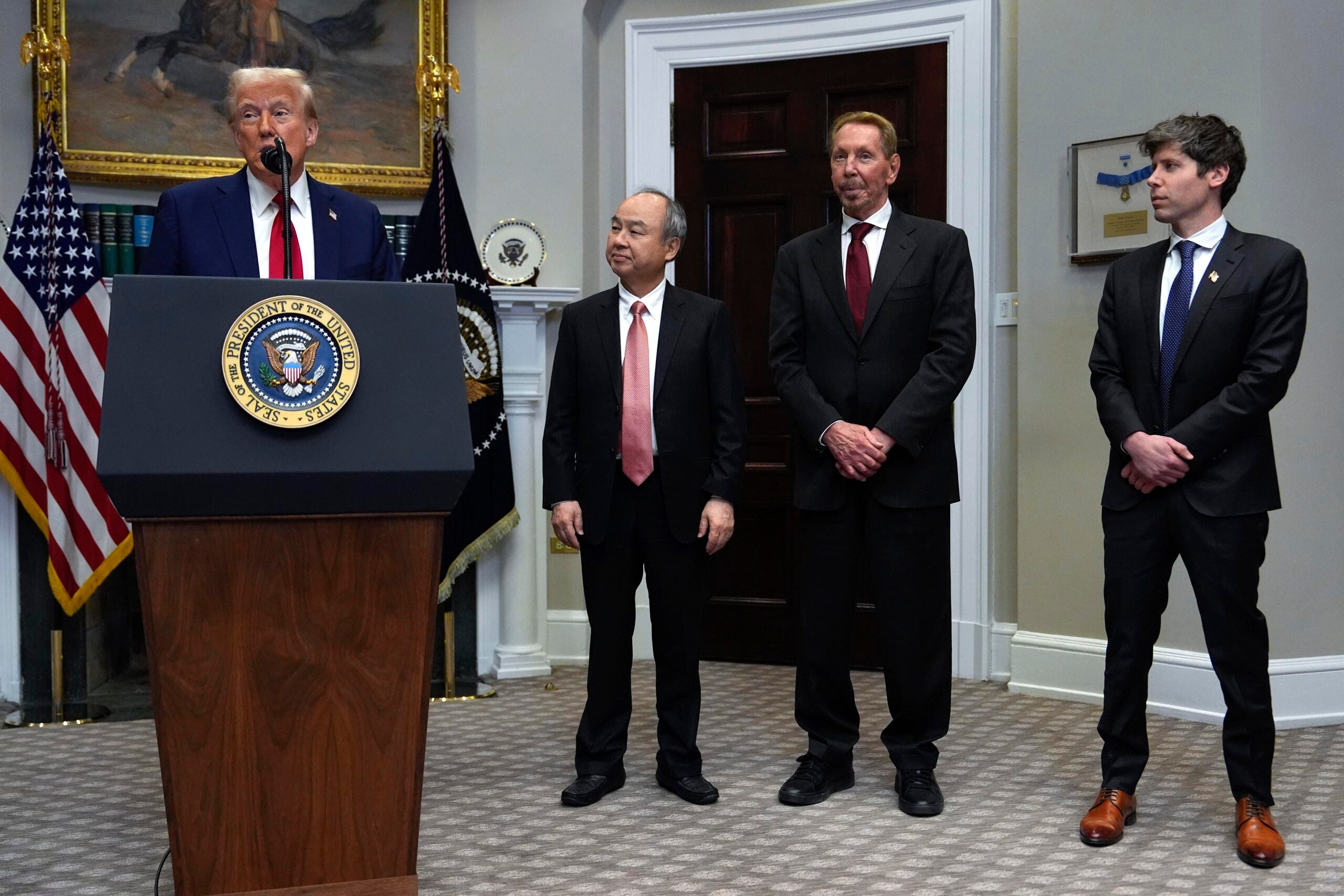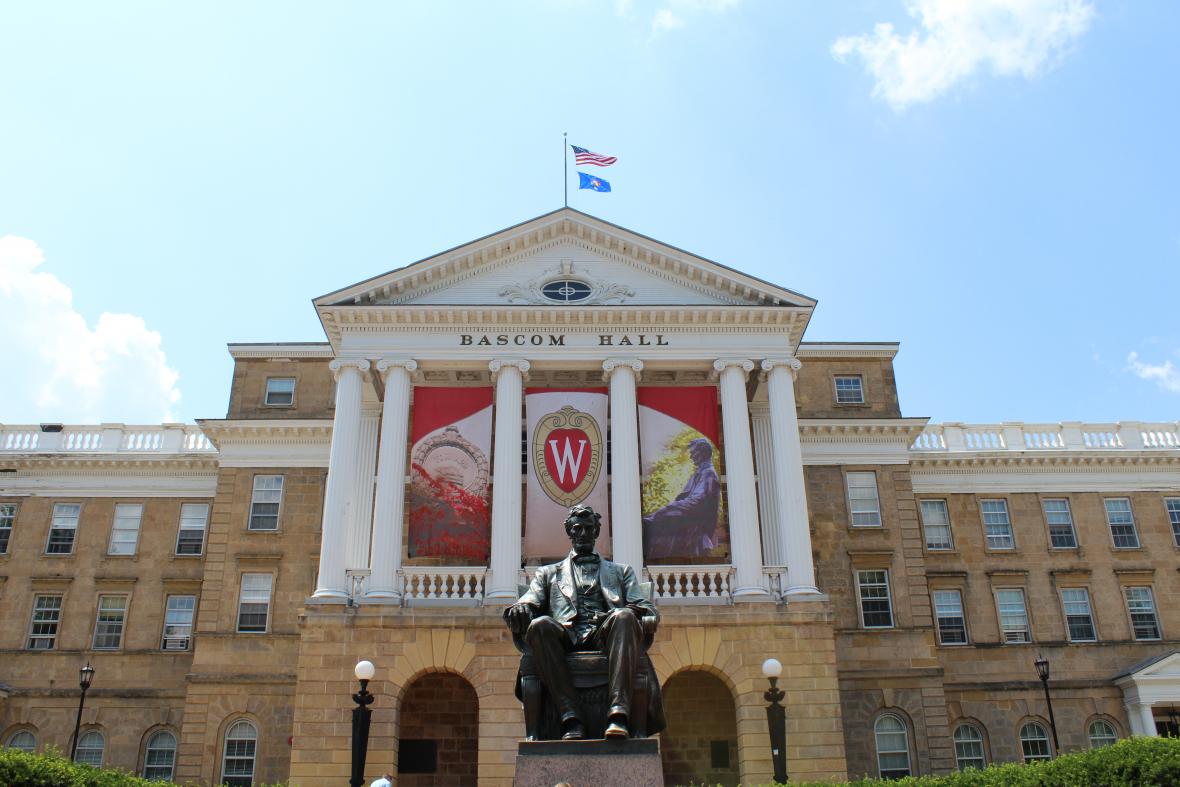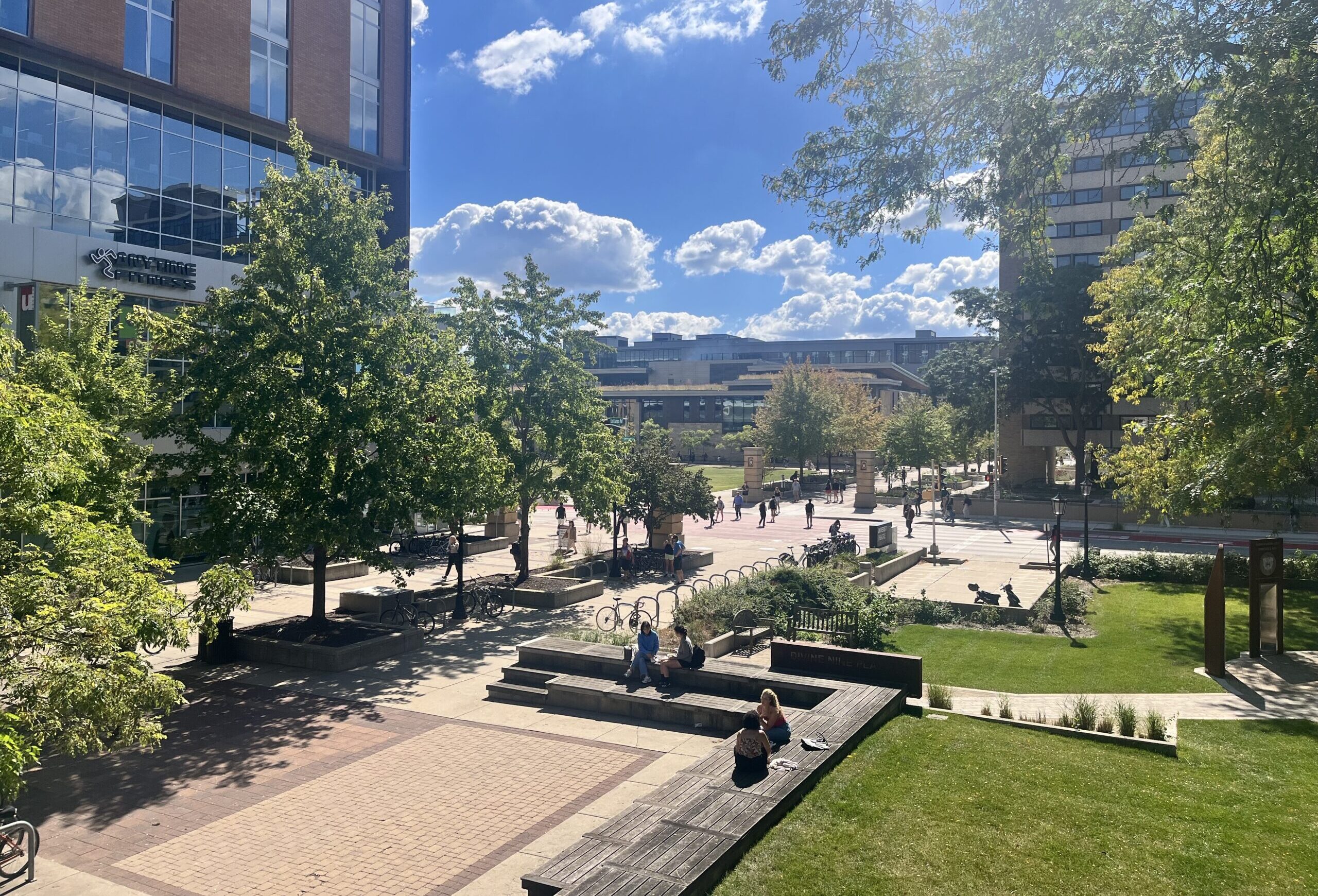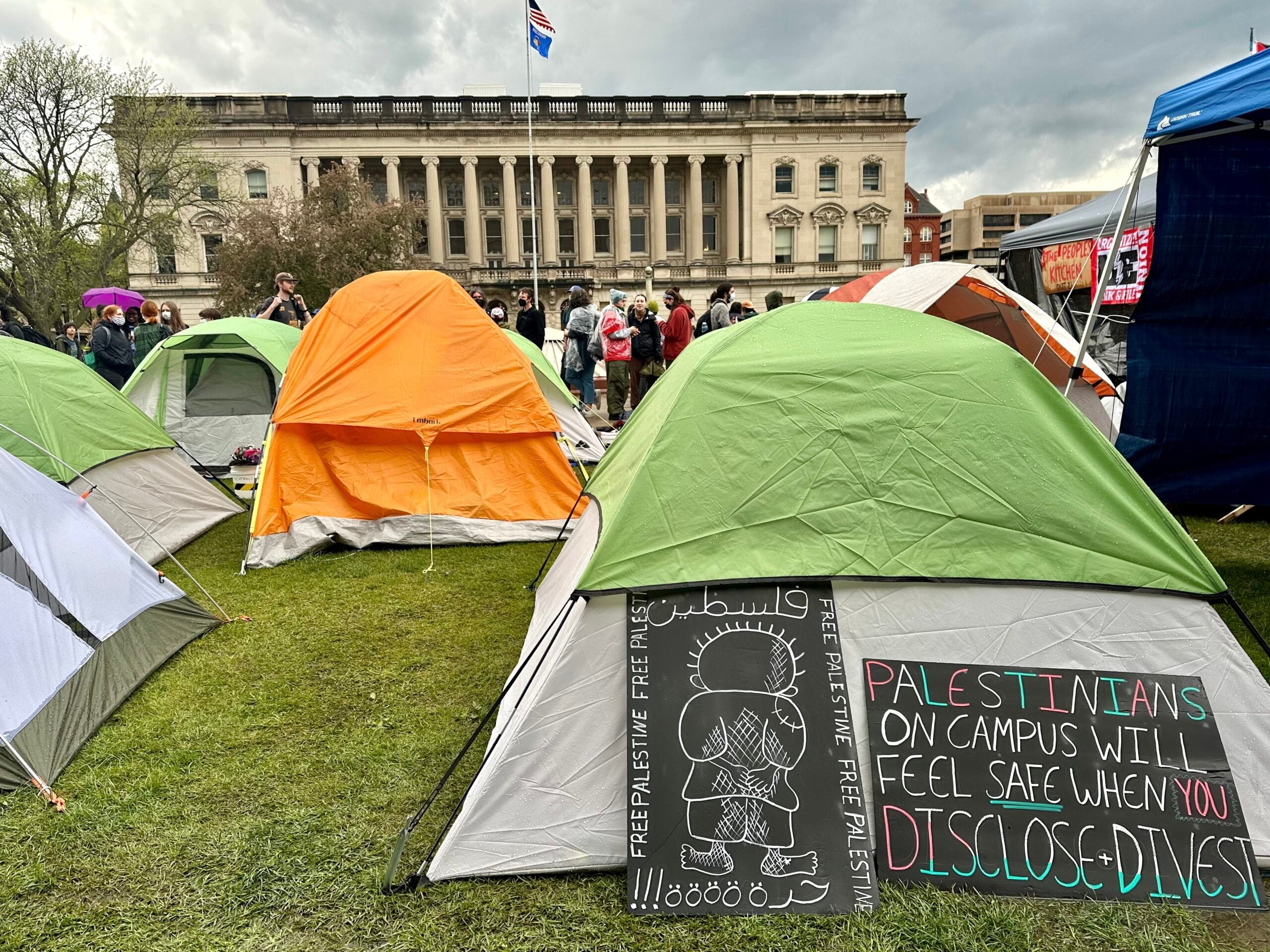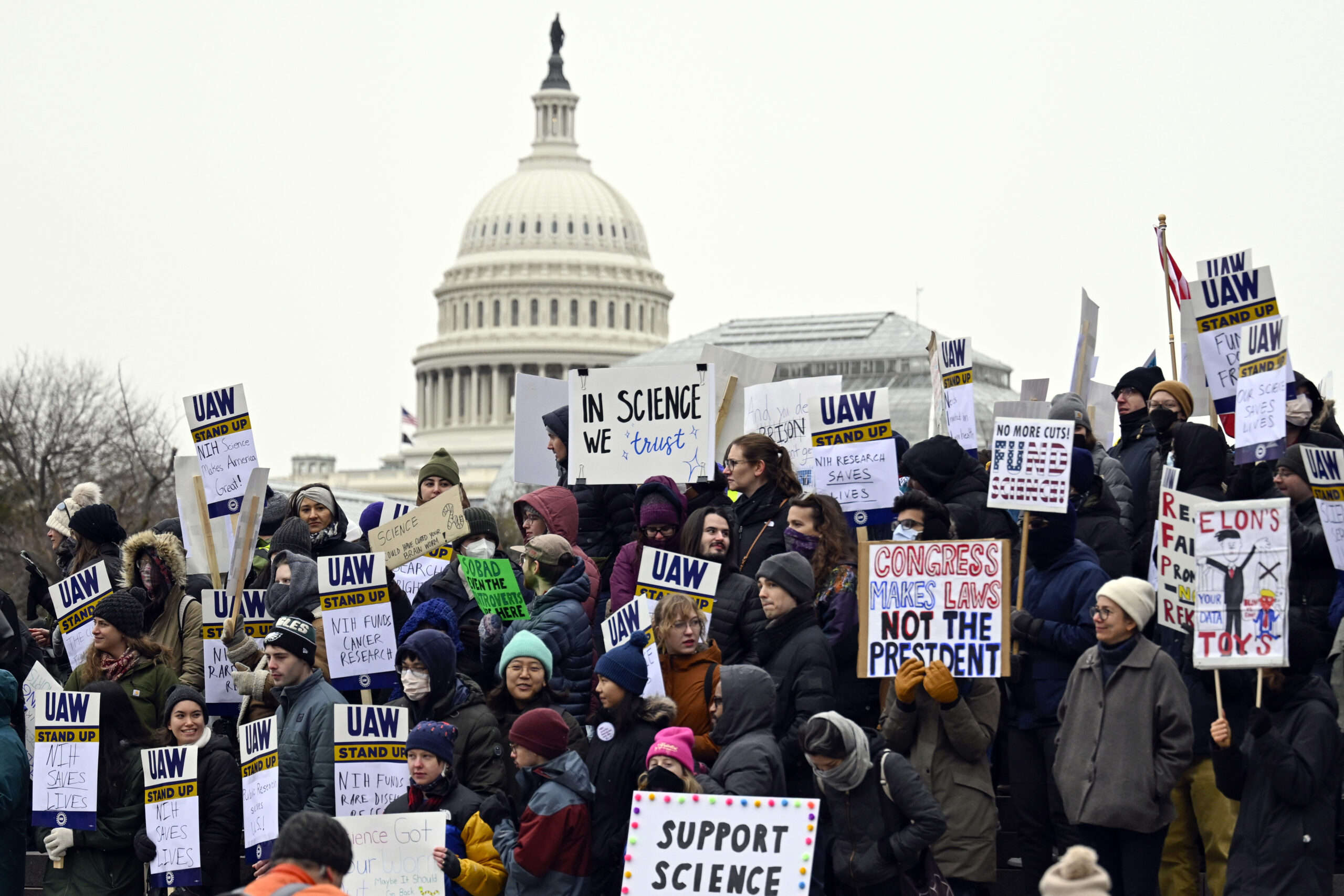The University of Wisconsin–Madison put a hiring freeze this week on positions paid for by federal funds. Leadership also told staff to limit purchases and travel using these dollars for the time being.
“It is important to not create any new obligations on existing federal awards,” Provost Charles Isbell and Vice Chancellor for Finance and Administration Rob Cramer wrote in a message to UW-Madison deans, directors and administrators on Jan. 29.
The move is in response to the uncertain fate of some federal aid and research grants following recent actions by the Trump administration, including a quickly rescinded memo ordering a pause on federal grants and assistance.
Stay informed on the latest news
Sign up for WPR’s email newsletter.
The pause was aimed at reviewing if such funds complied with Trump’s parade of executive orders, “including, but not limited to, financial assistance for foreign aid, nongovernmental organizations, DEI, woke gender ideology, and the green new deal.”
Uncertain how the administration will proceed, Wisconsin business leaders and researchers are speculating on what could happen if federal research dollars are ultimately delayed or reduced.
In the 2023 fiscal year, UW–Madison ranked 6th among the nation’s universities in research spending with about $ 1.7 billion in expenditures. About half of that money came from the federal government.
“So the economic effect could be huge from just having that much revenue potentially disappear,” said Tim Honaker, president of the nonprofit Midwest Research University Network, which helps universities like UW-Madison commercialize their research. “I don’t think that’s going to happen. But the fact is that the federal government is such a huge customer … that it really causes a dilemma for the people that are running the enterprise.”
Honaker said the universities have a big impact on local economies.
“If there’s less research, there’s less opportunity to train the next generation of scientists,” Honaker said. “And [that] could lead to a talent gap.”
Attorney Mark Ehrmann helps universities spin off their research into companies. He said government funds are important for developing new technologies and therapies.
“I would be worried that that would slow down or stop if you didn’t have that government support,” Ehrmann said.
He said federal research dollars have a multiplier effect. They can lead to start-ups and ultimately help the local economy.
“Federal research has been going on for decades, and I think it’d be hard to see how that could just go away entirely,” Ehrmann said. “I’d be surprised if it got to that.”
In their message, UW-Madison leadership said they will continue to update staff as “formerly predictable federal programs will be experiencing new degrees of uncertainty and change.”
Wisconsin Public Radio, © Copyright 2025, Board of Regents of the University of Wisconsin System and Wisconsin Educational Communications Board.
